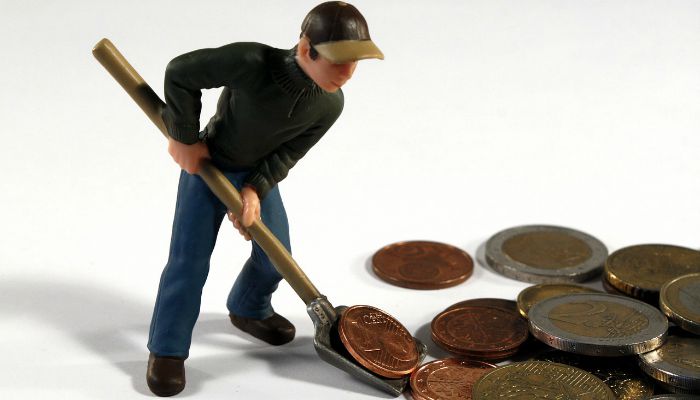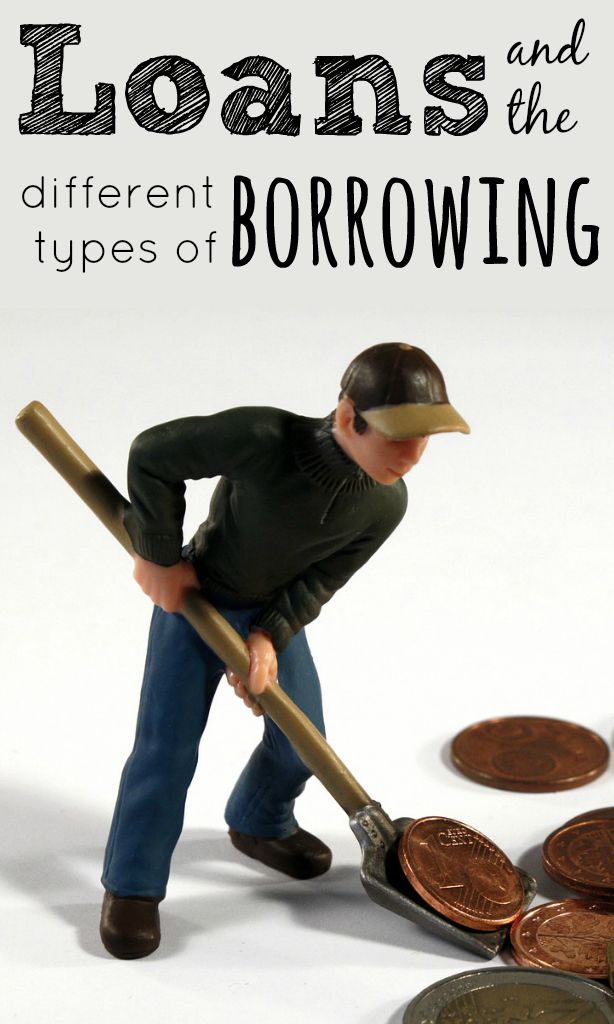When looking to borrow money as a loan there are many different options. Each type of loan is very different so research thoroughly before you consider applying.
Written in collaboration with TSB

£10 sign up bonus: Earn easy cash by watching videos, playing games, and entering surveys.
Get a £10 sign up bonus when you join today.
Join Swagbucks here >>
At some point in most people’s lives, they need to borrow money. Whether it’s a few quid from the bank of mum and dad, money to get a brand new car, or even purchase a house, if you do not have the savings put aside then people turn to a loan.
Quite simply, a loan is when you borrow money that has to be paid back, usually with interest. However, there are loads of different loans to chose from, depending on your circumstances.
Please, please, please be sure to make sure you can afford a loan before taking one out. If you are struggling with debt please speak to the brilliant people over at Stepchange (call free from a landline on 0800 138 1111 or go to their site and ask for a free callback) or National Debtline (call them for free from a land line on 0808 808 4000 or use their online web chat service) who will be able to give you free advice.
Although there are different kinds of loans, the way each of the works is slightly different. Any loan you take will either be secured or unsecured.
Secured Loans
A secured loan is a debt attached to something you own. If you don’t keep up with the payments, the loan will likely be taken back from you to recover the debt.
Unsecured Loans
This is a debt that is not secured against anything. If you don’t pay you won’t have to return any goods but you will be taken to court. As the loan is not secured the interest rates are usually higher.
The different types of loans people can apply for (subject to their credit rating) and in order of potential APR amount are:
Personal Loan
A personal loan could either be secured or unsecured however with a secured loan you would have the option to ask to borrow more money as the arrangement is normally secured against your house.
For an unsecured loan, the money will not be secured against any assets. A lender could offer a variable interest rate so the repayments may go up or down while you are paying the money back.
You will usually be able to borrow from £1,000 to £25,000 and you will need to pay the money back via a monthly direct debit for no more than 60 months (or 5 years). Different lenders will charge a different amount of interest but (depending on your credit score, the amount you want to borrow and the period you want to pay it back over) you could look to pay 4% APR.
People use a personal loan to consolidate their debts – putting a few debts altogether under one payment. This way there is only one payment to make and the overall amount that needs to be paid back will be lower. Other people use personal loans for house renovations or to even buy a car.
A secured loan is only available to people who have a mortgage on a property or own their own home. Should you not keep up with the repayments on your loan the lender will repossess your home to get the money back. If you are looking at this type of loan then you need to be absolutely sure that you’ll be able to manage the continuing repayments.
With a secured loan you will be able to borrow much more than an unsecured loan. You could normally borrow from £3,000 right up to £250,000 and ask to repay the loan over the course of 25 years. Again, depending on how much you want to borrow, you could look to see an APR from 5% through to 10%.
Peer to peer lending
Just as it sounds, peer to peer lending is people who lend and borrow money to each other.
It’s not quite as up in the air as that an is managed by a company who keep all details private and confidential.
If you want to borrow money then you apply through a peer to peer lending site like Zopa or RateSetter. This is an unsecured loan and you can ask for anything from £1,000 up to £25,000. The shortest term is usually one year and you will the maximum is five years to pay the loan back. Peer to peer loans will charge an APR from 5-8%, depending on how much you want to borrow, over what time period and depending on how good your credit score is.
Mortgage
A mortgage is a loan that is used to buy a property which you can apply to a bank or building society for. This is a secured loan and if you fail to meet the repayments, you could lose your home to the lender.
There is a much longer time period to pay the mortgage back and it’s normal for the repayment period to be 25 years but it could be longer or shorter. You also won’t generally be able to get a mortgage for 100% of the property value so you’ll need to save up a hefty deposit (oh and have a good credit rating too!). The initial interest rate could be as low as 1.5% but could go up to 5% APR or higher. It depends on your circumstances and how much you want to borrow.
There is two types of mortgages. You can either apply for a repayment mortgage where what you pay back goes towards the initial amount you borrowed plus the interest. By the end of the mortgage, the whole amount is then paid off. The other type of mortgage is an interest only mortgage whereby the repayment you make go towards the interest only. When the mortgage comes to an end you then had to repay a lump sum the same as the initial amount you borrowed.
With a mortgage, you are able to look at both fixed (the amount is the same) and variable (it could go up or down) interest rates.
There are a lot of choices so you need to be sure that you are entering into the right mortgage first, teemed with the risk of losing your home if you don’t keep up with the repayments.
Credit Union Loan
A credit union is set up and run by members as a not for profit organisation. They are usually local or there may be one run at a large employer.
A credit union offers members both savings and borrowing options, generally with better interest rates than banks.
Because they are much smaller than banks, and are working in their own community, turning up and expecting a loan on the first day is probably not going to happen. However, if you set up a savings account with them then the chance of getting a loan if you need one could improve.
Credit unions cannot charge any more than 42.6% APR per year although many charge far less and could offer unsecured loans for up to five years and secured loans for up to 10 years.
To find your local credit union you can search here.
Budgeting loan
If you’re claiming certain benefits, with a Budgeting Loan you could get up to £812 as an interest-free loan from the government.
It’s easy to apply online and you could have the money in around a month.
You pay the money back from your benefits each week, up to a maximum of two years. However, there are limits on what you can spend the money on.
Doorstep lending
Doorstep loans are a very expensive way of borrowing money versus other types of loans.
The amount you can borrow can be from £50 up to £1,000 but the interest rates are high – some with Representative APR well over 1,000%! The loan period is usually very short and the loan repayments are made from your home; one of their reps will visit you weekly to collect the repayments.
You are able to repay the loan early and you should be able to get a fair rebate on the interest but it depends what was signed in the original agreement so make sure you read it through properly before signing.
Please also remember to check if the person/company you are looking to borrow from is authorised by the Financial Conduct Authority (FCA). If they are not then they are an unlicensed loan shark! Report them and do NOT borrow any money.
If you are able to get a personal loan instead, get an overdraft, or spend on a credit card, then you should definitely try to avoid this one as they will work out cheaper.
Logbook loans
A logbook loan is a loan that is secured on your vehicle. When you take out one of these loans, the lender will own your vehicle under a bill of sale until you have repaid the original amount plus interest.
You can borrow from £250 to £50,000 depending on what the vehicle is work but they may only let you borrow part of the value of the vehicle. You could get charge an APR of up to 400%.
You have to be able to prove that the vehicle is your and that it is taxed and has an up to date MOT. The car will also have to outright belong to you and have no finance left to pay.
Payday Loan
Payday loans are expensive. There is no getting away from the high-interest rates and short term loan period. Without sounding too biased, I do not like a payday loan. There, I’ve said it.
They can charge anything up to 1,500% APR and you can borrow up to £400 or 38 days. At the end of the loan period, you will need to pay back the initial loan and the interest which will be a massive amount. If you took one of these loans out could you afford the next month to be so much money down? It’s easy to fall into a trap with these types of loans and if possible you should steer clear.
Some see a pay day loan as the last option but there are different things you can do instead of borrowing from one of these lenders.
::
Remember that taking out a loan is a big deal money-wise and is something that should not be taken lightly.
You will need to have a good credit score, choose a loan with a decent interest rate and you MUST ensure that you’ll be able to afford the repayments.
Do your research, check your budget and take your time over the decision. If you are facing money worries then don’t turn to some of the more expensive options get in contact with Stepchange (call free from a land line on 0800 138 1111 or go to their site and ask for a free callback) or National Debtline (call them for free from a land line on 0808 808 4000 or use their online web chat service) instead.


Leave a Reply